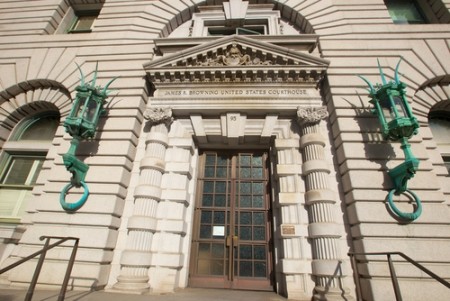9th Circuit upholds prostitution ban in constitutional challenge

The San Francisco-based 9th U.S. Circuit Court of Appeals.
A federal appeals court has upheld a California law that criminalizes prostitution in a First Amendment challenge.
The San Francisco-based 9th U.S. Circuit Court of Appeals upheld the prostitution ban Wednesday in a suit claiming violation of First and 14th Amendment rights to freedom of association, a 14th Amendment due process right to earn a living, a 14th Amendment due process right to sexual privacy, and a First Amendment right to free speech.
The Recorder, the Washington Post and the San Francisco Chronicle have stories; How Appealing links to additional coverage and the unanimous panel opinion.
The suit was filed by three prostitutes, a potential client and an advocacy group for sex workers called the Erotic Service Provider Legal Education and Research Project. They had cited the 2003 Supreme Court decision Lawrence v. Texas that struck down a criminal ban on sodomy.
The 9th Circuit said sex for pay isn’t the kind of intimate conduct protected by Lawrence v. Texas, a case that did not involve prostitution.
Freedom of intimate association extends to “highly personal relationships,” and not to the transactional relationship between a prostitute and client, the court said. Nor does prostitution qualify as protected commercial speech, according to the court. And there is no right to engage in illegal employment, the court said.
The court cited several justifications for the law, including a link between prostitution and trafficking, violence to women, illegal drug use and sexually transmitted diseases.
The suit’s claims “may yet convince the California legislature to change its mind. But this court cannot change its mind for them,” the court said in an opinion by Judge Jane Restani.
Restani, a judge of the U.S. Court of International Trade, was sitting by designation.
Write a letter to the editor, share a story tip or update, or report an error.


